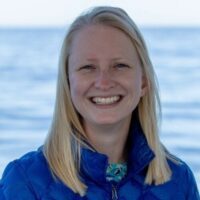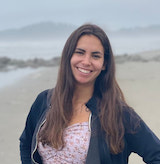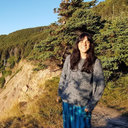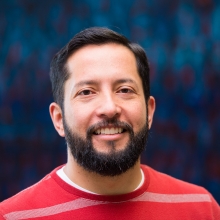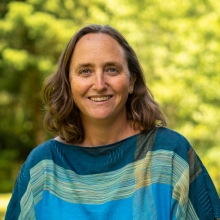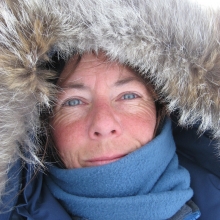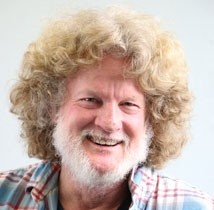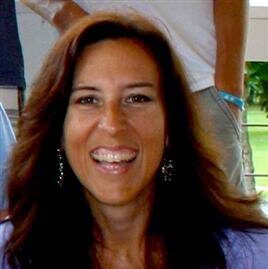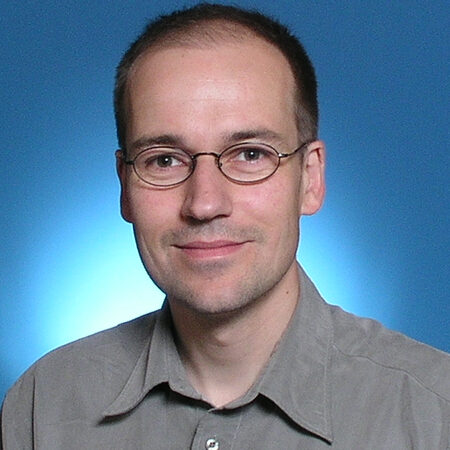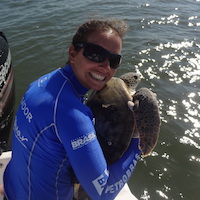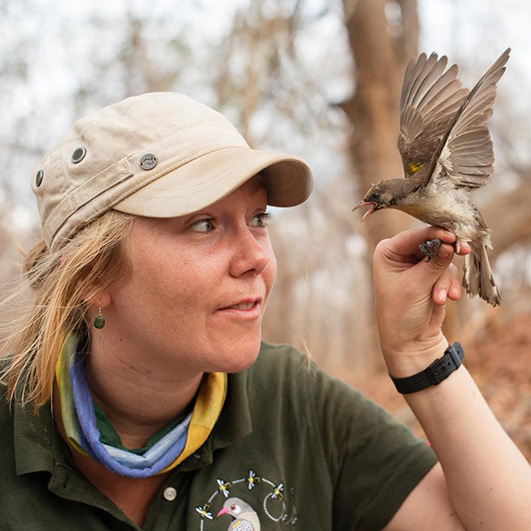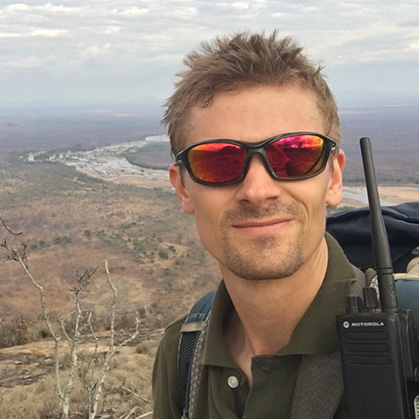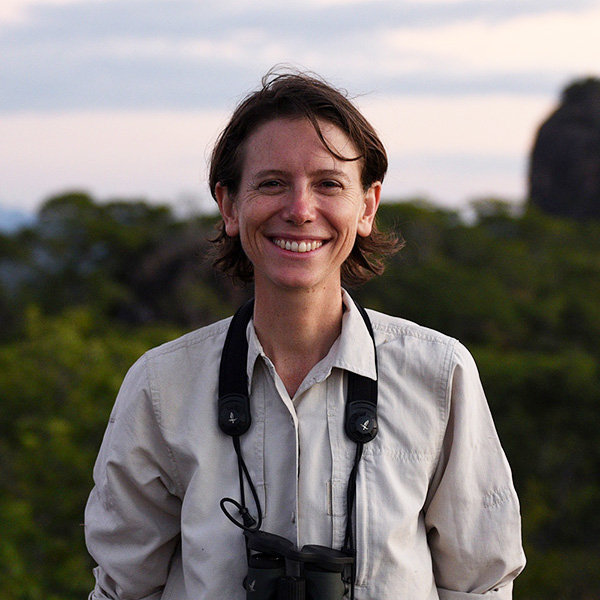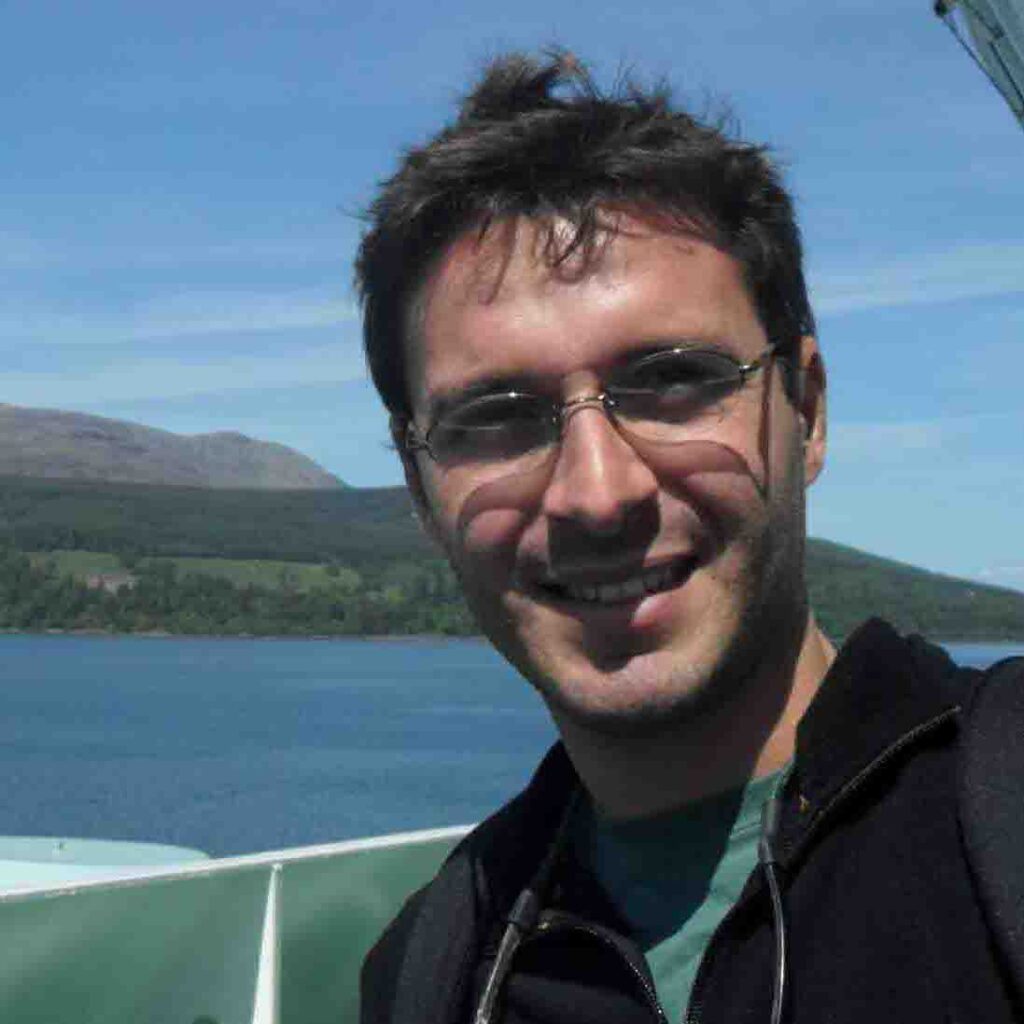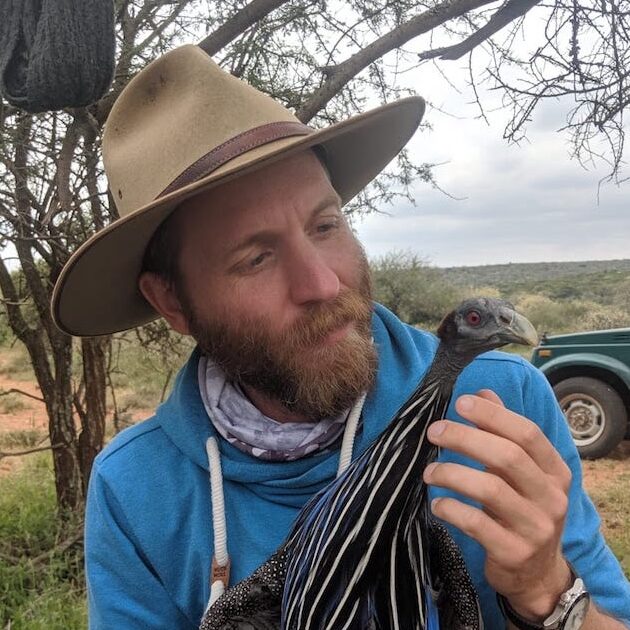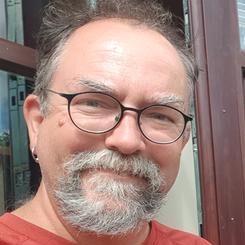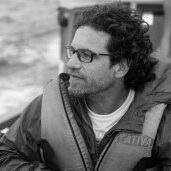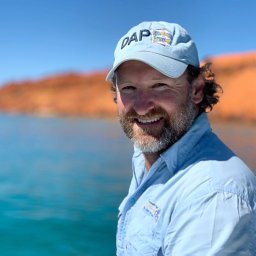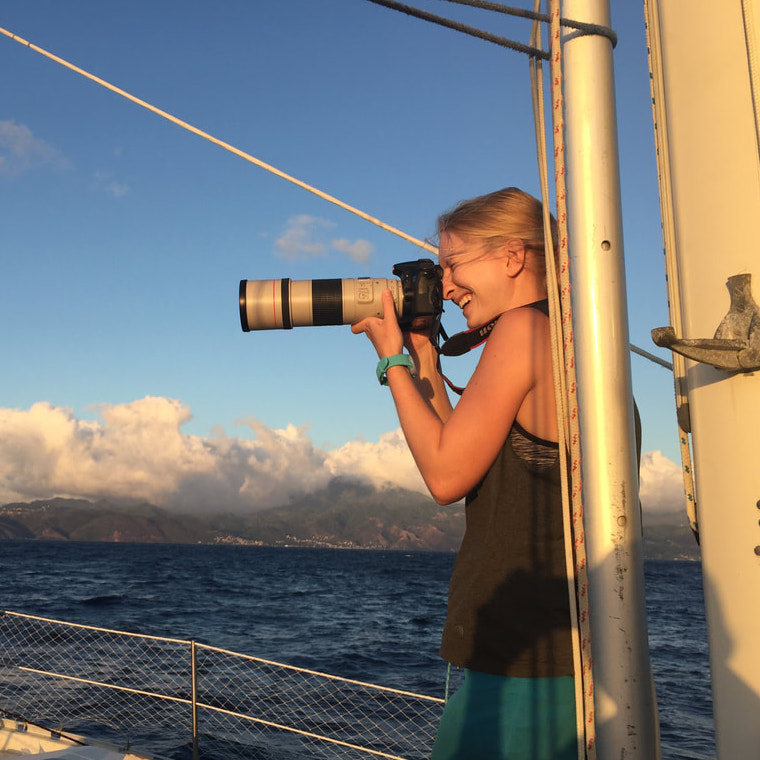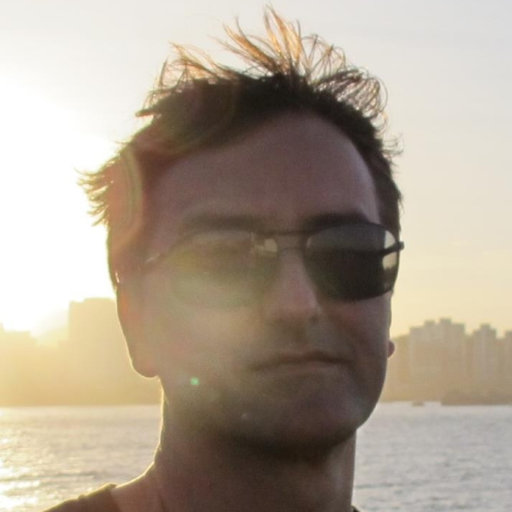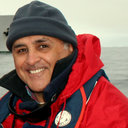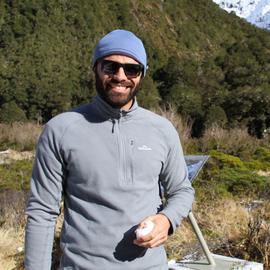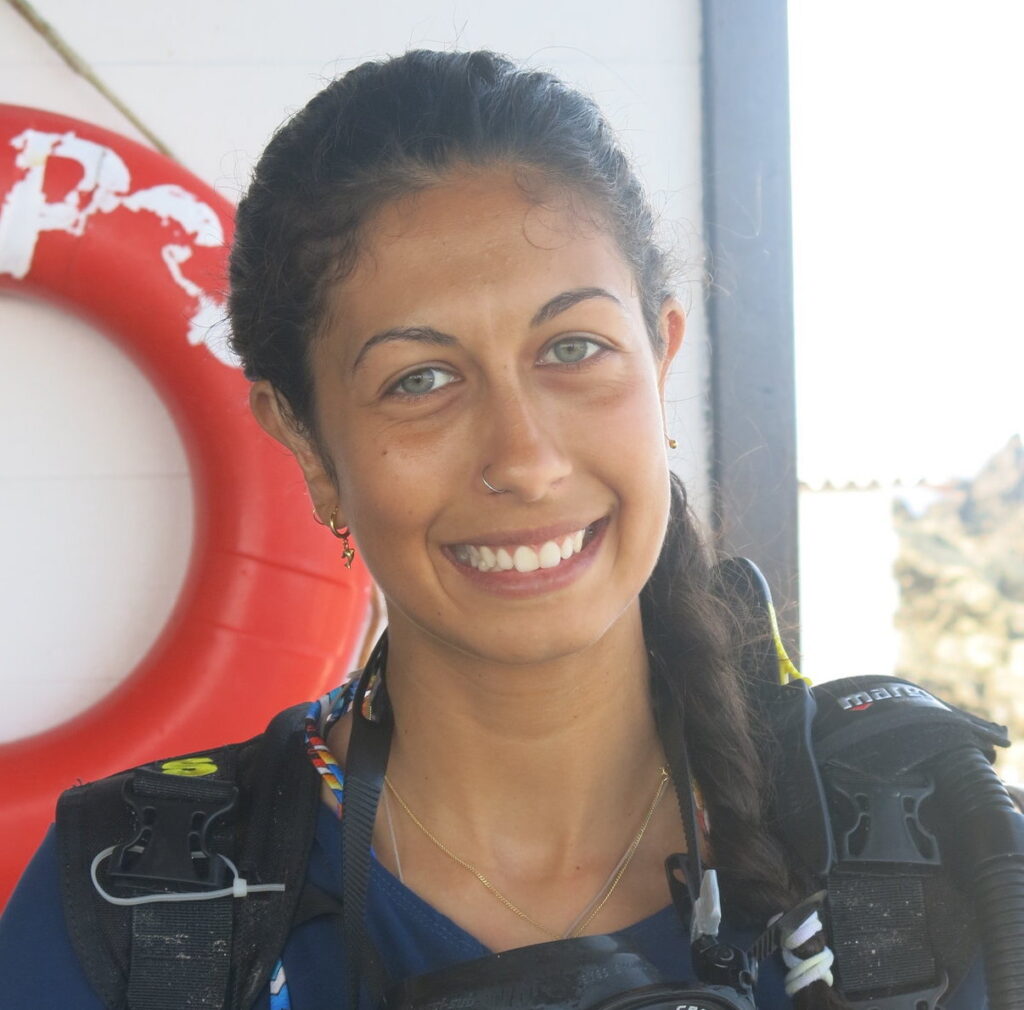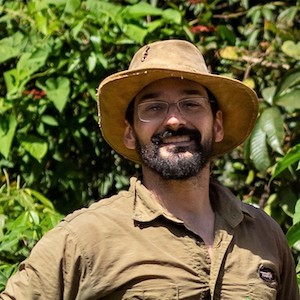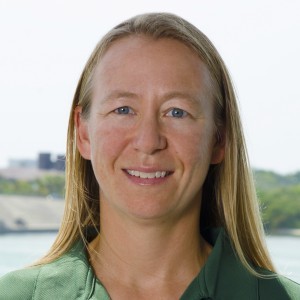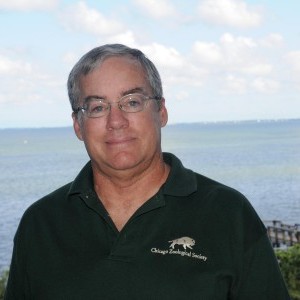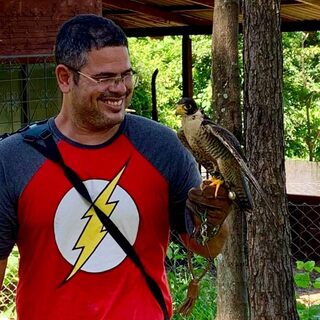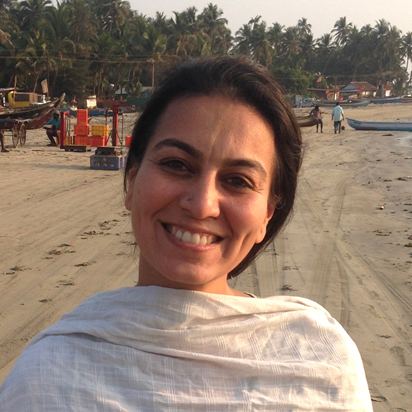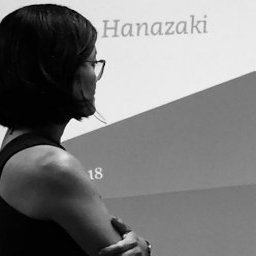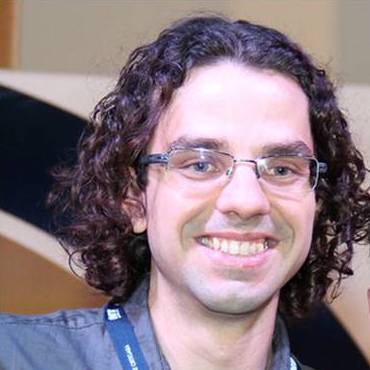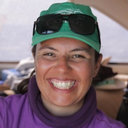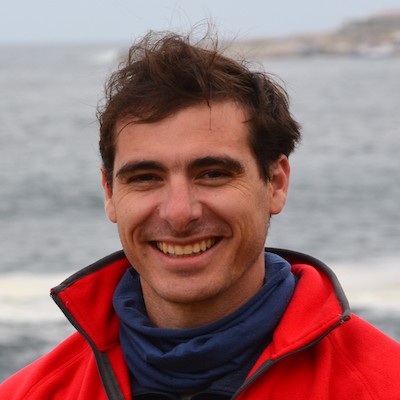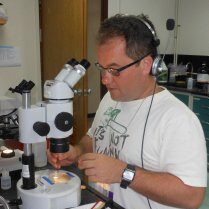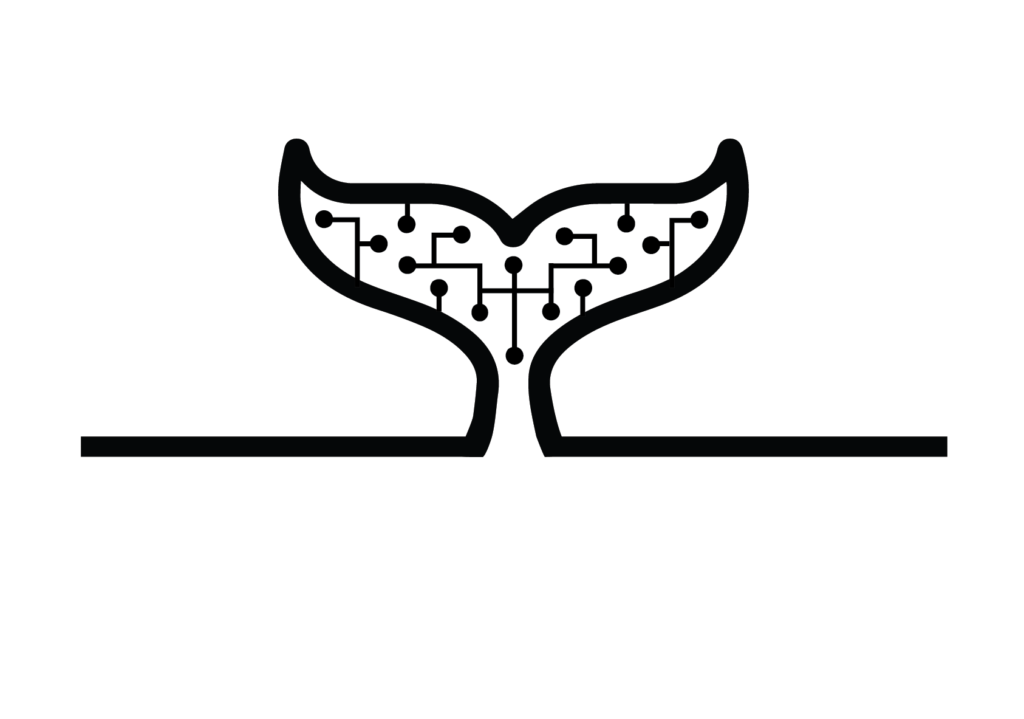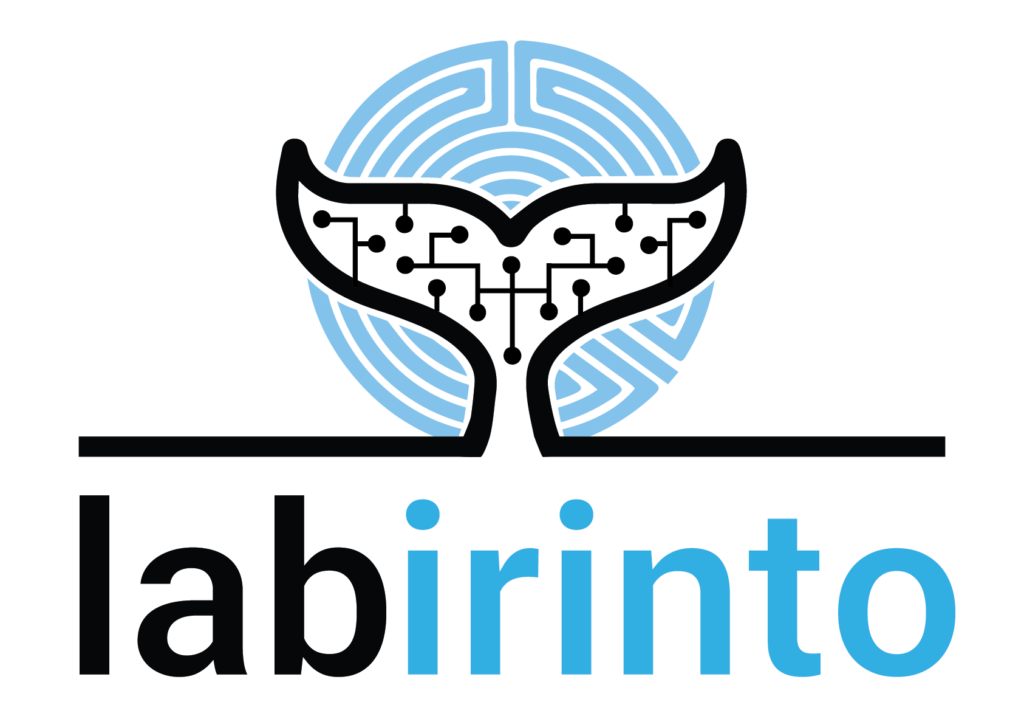
TEAM
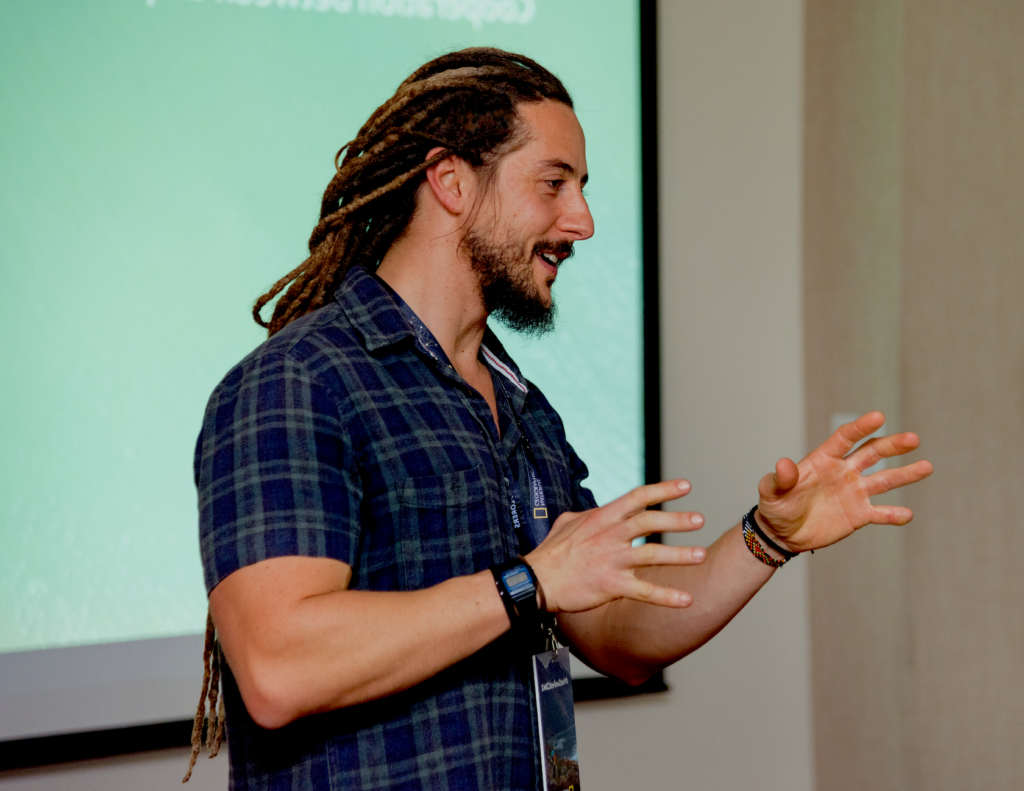
Principal Investigator
Mauricio Cantor is a behavioural ecologist interested in the dynamics of social, cultural and ecological systems and other networked biological phenomena. His empirical research focus on marine mammals as research models due to their behavioral diversity, learning ability and social complexity —not to mention the exciting fieldwork challenges that come with studying them. Mauricio got a BSc in Biological Sciences and a MSc in Ecology in Brazil, and a PhD in Biology in Canada. After some postdoctoral appointments in Brazil, Germany and Switzerland, he is now an Assistant Professor at the Department of Fisheries, Wildlife and Conservation Sciences, and at the Marine Mammal Institute, at Oregon State University, USA, where he leads the LABIRINTO
“We are committed to anti-racism in everything we do, and acknowledge that anti-racism is a path toward dismantling other forms of oppression, including inequities related to gender, sexual orientation, class, ability, religion, or age.”
“Everyone has the opportunity to participate in big decisions. We intentionally seek out different perspectives, including minority opinion of all kinds.”
“We strive to understand where the system is functional and dysfunctional in serving all audiences. We strive for a system that is equitable to all.”
TEAM Members
What is she up to?
I am a bioacoustician broadly interested in the interplay among vocal complexity, social complexity, and culture in animals. Much of my past research has focused on measuring how animal communication varies over space and time, as well as developing new methods for classifying vocalizations and deducing population structure from acoustic data. With LABIRINTO, I am investigating dolphin social communication during intraspecific cooperative foraging tasks and bowhead whale song diversity in different populations. I received a PhD in Biology from Dalhousie University and did my first postdoc in the Comparative Bioacoustics Group at the Max Planck Institute for Psycholinguistics.
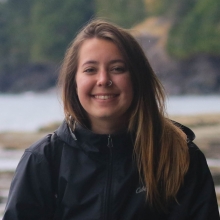
Michaela Kratofil, BSc, MSc
2021-present, PhD student at Graduate Program in Wildlife Sciences
Institution: Marine Mammal Institute, Oregon State University
Supervisors: Dr. Mauricio Cantor, Dr. Robin Baird
Thesis: Movement ecology of Hawaiian false killer whales: Influence of the physical environment and social structure, with implications for management
What is she up to?
I am a NSF GRFP Fellow at Oregon State University’s Marine Mammal Institute. Leading up to graduate school, I worked as a research assistant at Cascadia Research Collective, a non-profit organization conducting research on marine mammal populations off the US West Coast and Hawaiian Islands, and continue to collaborate with CRC on my thesis research. I’m broadly interested in applied ecological research and conservation, but have a particular interest in the population and movement ecology of marine mammals. Through my current and future research, I aim to use quantitative techniques to better understand how both the physical and social environments shape animal movement, and what implications these have towards management objectives. My work to date has primarily consisted of analyzing telemetry data for research initiatives on Hawaiian odontocetes, although I’m involved in a number of different studies concerning odontocete stock structure and management in Hawai‘i. Thus far my research has entertained a variety of conservation themes, including ecotoxicology, fisheries bycatch, mid-frequency sonar exposure-response, and species-habitat modeling.

Daiane Santana Marcondes, BSc, MSc
2022-present, PhD student at Graduate Program in Coastal and Oceanic Systems
Institution: Centro de Estudos do Mar, Universidade Federal do Paraná, Brazil, with a research exchange visit at the Oregon State University
Supervisor: Dr. Mauricio Cantor
Co-supervisor: Dr. Camila Domit
Thesis: Social structure and acoustic repertoire of Guiana dolphins in the Paranaguá Estuarine Complex, southern Brazil
What is she up to?
Daiane investigates the relationship between acoustic behavior and social structure of Guiana dolphins, and how the exposure to anthropogenic activities can disrupt both social and acoustic repertoires.
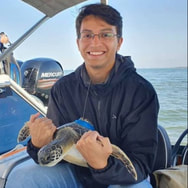
Gabriel Fraga da Fonseca, BSc, MSc
2022-present, PhD student at Graduate Program in Coastal and Oceanic Systems
Institution: Centro de Estudos do Mar, Universidade Federal do Paraná, Brazil, with a research exchange visit at the Oregon State University
Supervisor: Dr. Camila Domit,
Co-supervisors: Dr. Maikon di Domenico, Dr. Mauricio Cantor
Thesis: Spatiotemporal patterns of sea turtle mortality in the Southern Atlantic
What is he up to?
Gabriel investigates the spatio-temporal distribution of sea turtle stranding events in southeastern and southern Brazil, by applying a range of modelling techniques to a comprehensive database.
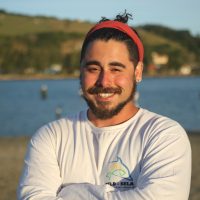
João Victor Silva do Valle Pereira, MSc
2024-present, PhD student
Institution: Oregon State University
Supervisor: Dr. Mauricio Cantor
Thesis: Behavioral mechanisms, population consequences, and ecological resilience of dolphin specialized foraging behavior
What is he up to?
I am a biologist and have a Master’s degree in Ecology (2021) from the Universidade Federal de Santa Catarina, Brazil. My main areas of expertise and research are behavioral ecology, social structure, and cetaceans and artisanal fishers behavior. My PhD work will combine archival and new empirical data to address the behavioral mechanisms of specialized foraging tactics of bottlenose dolphins in Florida Bay and estimate their consequences for population dynamics. I will also develop agent-based models to infer the resilience of the dolphins’ foraging tactics to sea level rise and climate change.
What is she up to?
I received my Bachelor’s degree with a marine emphasis at Western Washington University, where I worked in Dr. Acevedo-Gutierrez’s Marine Mammal Ecology lab. I developed an immense interest in marine mammal behavioral ecology, and started researching cultural transmission in cetaceans where I came across many of Dr. Cantor’s papers. Thereafter, I obtained my current position in Dr. Cantor’s Lab for Animal Behavioral Interaction Research in the Ocean, and am currently investigating the spreading dynamics of human-induced food provisioning on Sarasota dolphins. The major goal of my study is to identify the mechanism by which key individual dolphins spread the begging behavior in Sarasota to help stop the conditioning of dolphins to direct and indirect provisioning by humans. Apart from the lab, I spend my time outside, specifically at the beach swimming and scuba diving! You can find more information on my thesis project on my GitHub at https://github.com/bankheak/Dolphins
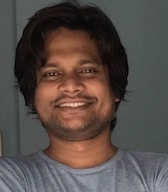
Mahmud Rahman, BSc, MSc
2022-present, MSc student in Wildlife Sciences
Institution: Oregon State University, USA
Supervisor: Dr. Mauricio Cantor
Thesis: Risk-taking behavior among bottlenose dolphins: individual variation and social influence
What is he up to?
Mahmud is an international M.Sc. student, coming from a riverine country Bangladesh where the largest population of Ganges River dolphins live. He has a bachelor degree in Fisheries and became interested in dolphins while working with Wildlife Conservation Society. His primary job was building a citizen science fishermen network to collect data on by-catch of cetaceans (e.g., Ganges River dolphins, Irrawaddy dolphins, Humpback dolphins). Being passionate about electronics, programming, and behavioral ecology, he realized that advanced technology can be used to research mapping behavioral networks. This excites him the most and has pushed him to pursue an M.Sc. in the Labirinto lab. His research will be investigating risk taking dolphins in a residential bottlenose population in the Florida Keys and their influence on other dolphins. His research project is supported by Mary Lou and Bruce Mate Marine Mammal Fellowship.
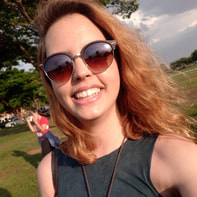
Tainá de Souza Duarte Nogueira, BSc
2020-present, MSc student at Graduate Program in Ecology
Institution: Universidade Federal da Bahia, Brazil
Supervisor: Dr. Marcos Rossi-Santos
Co-supervisor: Dr. Mauricio Cantor
Thesis: Social organization of Guiana dolphin in the Todos os Santos Bay
What is she up to?
During her master’s Tainá will investigate the social structure of the Guiana dolphin population (Sotalia guianensis) that inhabits the Bay of Todos os Santos in Bahia, Brazil, using social proximity data and individual photo identification. In addition, she will compare aspects of the social organization, such as group composition and size, across populations, relating social patterns with environmental descriptors and resources availability along the distribution of the species.
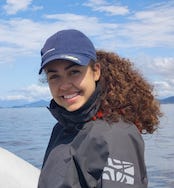
Fernanda Fecci, BSc, MSc
2022-2024, MSc student at the Graduate Programme in Coastal and Oceanic Systems
Institution: Universidade Federal do Paraná, UFPR, Brazil
Supervisor: Dr. Camila Domit
Co-supervisor: Dr. Mauricio Cantor
Thesis: Parental care in Guiana dolphins, a proxy for assessing anthropogenic impacts on the Paranaguá Estuarine Complex, Brazil
What is she up to?
Fernanda combined behavioural sampling with drone imaging analyses to investigate the influence of anthropogenic activities on the parental care of Guiana dolphins at the Paranaguá Estuarine Complex, southern Brazil
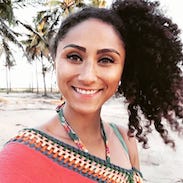
Dr. Stephane P. G. de Moura, BSc, MSc, PhD
2019-2024, PhD at the Graduate Programme in Coastal and Oceanic Systems
Institutions: Universidade Federal do Paraná, UFPR, Brazil, with a research exchange visit completed at the Oregon State University, USA
Supervisor: Dr. Camila Domit
Co-supervisor: Dr. Mauricio Cantor
Thesis: Distribution and spatial dynamics of Guiana dolphins, Sotalia guianensis, and the potential vulnerability to impacts on the Paraná coast, southern Brazil
Sté successfully defended her PhD thesis in March 2024!
What was she up to?
I studied the spatial dynamics and habitat selection of Guiana dolphins on the Paraná Coast, southern Brazil, and how these parameters are affected by anthropic activities. My main interests are in population and behavioral ecology, including topics such as behavior and group structure; photo-identification; population parameters; residence patterns; distribution and spatial dynamics; habitat use; habitat selection; habitat modeling; ecological traps; and cetaceans vulnerability to anthropic impacts. I always loved the ocean, and working for its conservation is a personal accomplishment.
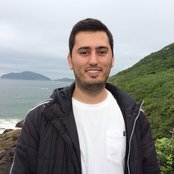
Dr. Alexandre M.S. Machado, BSc, MSc, PhD
2019-2024, PhD at the Graduate Programme in Ecology
Institution: Universidade Federal de Santa Catarina, UFSC, Brazil
Supervisor: Prof. Fabio Daura-Jorge
Co-supervisor: Dr. Mauricio Cantor
Thesis: The role of environment and individual differences on the dolphin-fisher mutualism
Ale successfully defended his PhD thesis in January 2024!
What is he up to?
I am a biologist with a master’s and PhD in Ecology at Universidade Federal de Santa Catarina. My research is on the interface between behavioral ecology and population ecology, combining multiple platforms of data collection, computational tools, and quantitative methods to investigate the multifaceted dimensions of ecological interactions. In my PhD, I investigated the individual variation in dolphins that forage with artisanal fishers and whether individuals have asymmetrical contributions to the benefits accrued in this rare case of human-wildlife cooperation. Ultimately, I helped to unravel the mechanisms underlying individual variation among dolphins foraging with fishers and quantify the population-level implications of such variation.
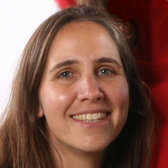
Dr. Shanan Atkins, BSc, MSc, PhD
2018-2023, PhD candidate at the School of Animal, Plant and Environmental Sciences
Institution: University of the Witwatersrand, Johannesburg, South Africa
Supervisor: Prof.Dr. Neville Pillay
Co-supervisor: Dr. Mauricio Cantor
Thesis: Identifying leverage points to solve the human-wildlife conflict regarding shark nets
Shanan successfully defended her PhD thesis in June 2023!
What is she up to?
I am wild about biodiversity in all its amazing manifestations and am driven to use science to inform effective conservation action to prevent the loss of biodiversity. I started out investigating the interactions between the Endangered Indian Ocean humpback dolphins and shark nets set to protect swimmers and surfers along the KwaZulu-Natal coast in South Africa. I’ve ended up doing a PhD studying the bigger picture, trying to see both the social and the ecological elements. My aim is to identify obstacles and opportunities to change this human-wildlife conflict that involves sharks, bathers and other marine megafauna that is caught unintentionally.
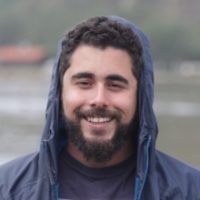
João Victor Silva do Valle Pereira, MSc
2023, post-MSc internship at Graduate Programme in Ecology
Institution: Universidade Federal de Santa Catarina, Brazil & Max Planck Institute of Animal Behavior, Germany
Supervisor: Prof. Fabio Daura-Jorge
Co-supervisor: Dr. Mauricio Cantor
Project: Social foraging and hunting performance in human cooperative systems
João successfully completed his MSc degree in December 2022 and completed a post-mic research internship in December 2023!
What is he up to?
I am a biologist and have a Master’s degree in Ecology (2021) from the Universidade Federal de Santa Catarina, Brazil. My main areas of expertise and research are behavioral ecology, social structure, and cetaceans and artisanal fishers behavior. I am interested in the fishing dynamics in Laguna, where artisanal fishers fish with the assistance of wild bottlenose dolphins. I currently work as an outreach fellow of the Long-Term Ecological Research Program (PELD) of the Laguna and Adjacent Estuarine System (SELA) in Brazil, and as a guest researcher in the Centre for the Advanced Study of Collective Behaviour of the University of Konstanz (Germany). Besides that, the pillars of my curiosity are social behavior, evolution, and systemic theory, in addition to the people who continue to provide me with the fuel that keeps my quest for knowledge burning. Nature is splendid. “I took a walk in the woods and came out taller than the trees” (Henry Thoreau).
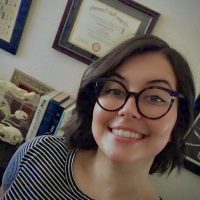
Kellan Parker, BSc
2023, graduate certificate student in Wildlife Management
Institution: Oregon State University
Supervisor: Dr. Mauricio Cantor
Project: Social Dynamics and Agonistic Behavior in California Sea Lions in Nonbreeding Colonies
Kellan successfully graduated in June 2023!
What is she up to?
I hold a Bachelor’s degree in Fisheries & Wildlife Sciences with a specialization in conservation biology, as well as a graduate certificate in Wildlife Management from Oregon State University. During my academic tenure, I worked as a research fellow in the Undergraduate Research in the Sciences and Arts (URSA) program under the guidance of Dr. Sanchez. My research focused barn owl behavior and nest box adoption success. Throughout my academic journey, I nurtured a profound interest in conservation behavior, with primary focuses on behavioral ecology, conservation biology, and wildlife management. Presently, I am a research analyst for Dr. Eleanor Gaines at the Institute for Natural Resources (INR), where I conduct in-depth species analyses on native reptiles and amphibians in Oregon. Additionally, I work as a writing technician for Dr. Todd Wilson affiliated with the United States Forestry Service (USFS), researching Humboldt’s flying squirrels as crucial indicators of long-term forest health. Beyond my professional commitments, I spend most of my time outside taking wildlife photographs or create insightful science-related content for social media. You can find more information about my science communication activities on my website, https://kellaneparker.squarespace.com
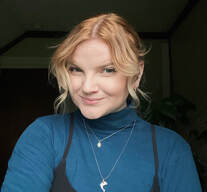
Kiera McGarvey Sears, MSc
2022, MSc student at University College Cork, Ireland
Institution: Oregon State University, USA
Co-supervisors: Dr. Mauricio Cantor, Prof. Emer Rogan, Prof. Fabio Daura-Jorge
Thesis: Parallel Lives: Do bottlenose dolphins cooperate amongst themselves when foraging with artisanal net-casting fishers?
Kiera successfully completed (and received first-class honors for) her MSc in August 2022!
What is she up to?
Kiera studied the fine-scale foraging coordination among bottlenose dolphins that interact with artisanal net-casting fishers in Laguna, southern Brazil, to investigate whether this foraging tactic represents a case of social predation for the dolphins. Kiera quantified the degree to which groups of dolphins coordinate their actions during their interactions with the artisanal fishers, by measuring the cohesion, heading, and breathing synchrony of dolphin groups of different sizes in aerial drone footage of the interaction. Kiera was a visiting MSc student from the University College Cork, carrying out her thesis at the Marine Mammal Institute, Oregon State University.
People & Projects

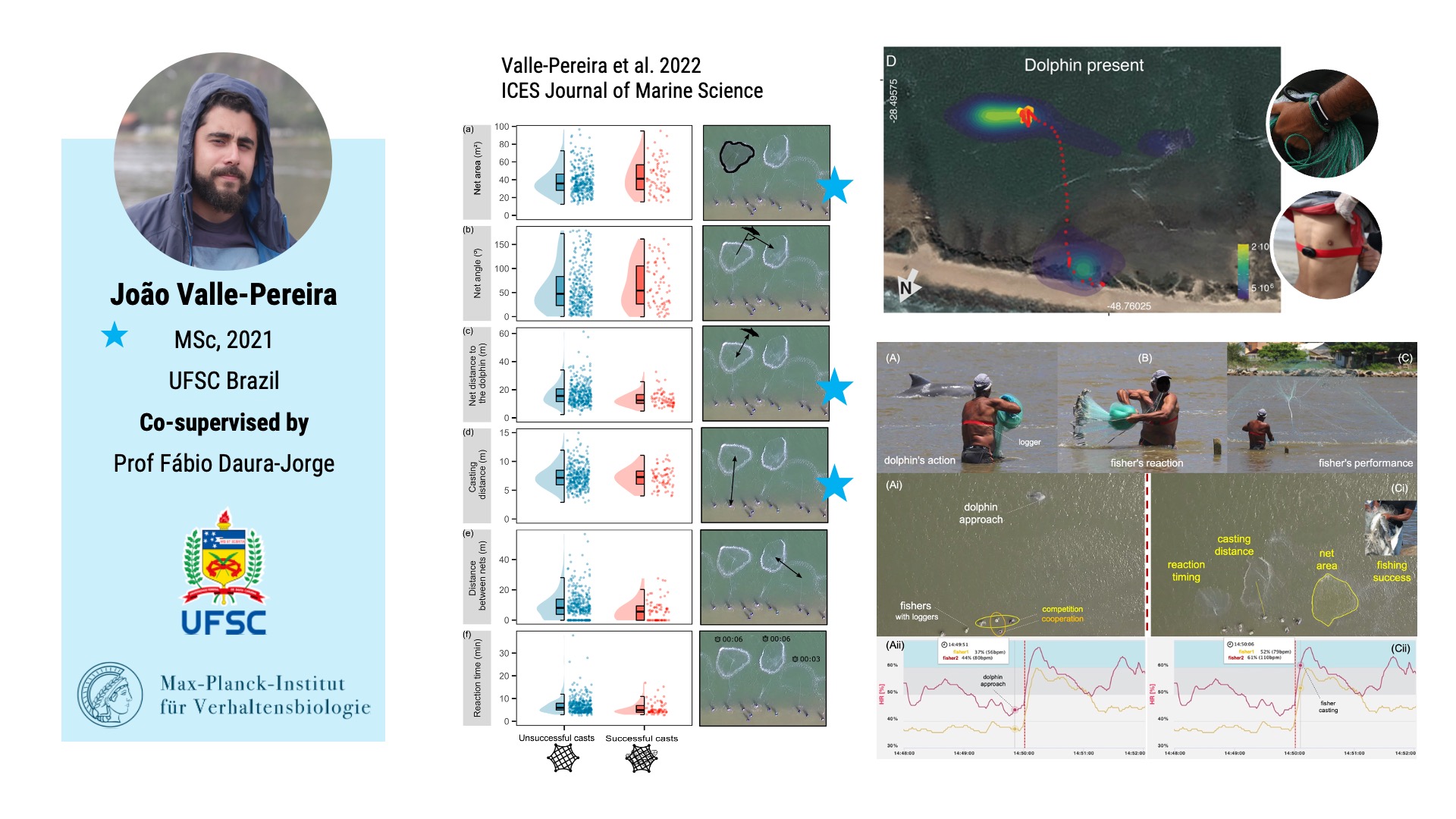
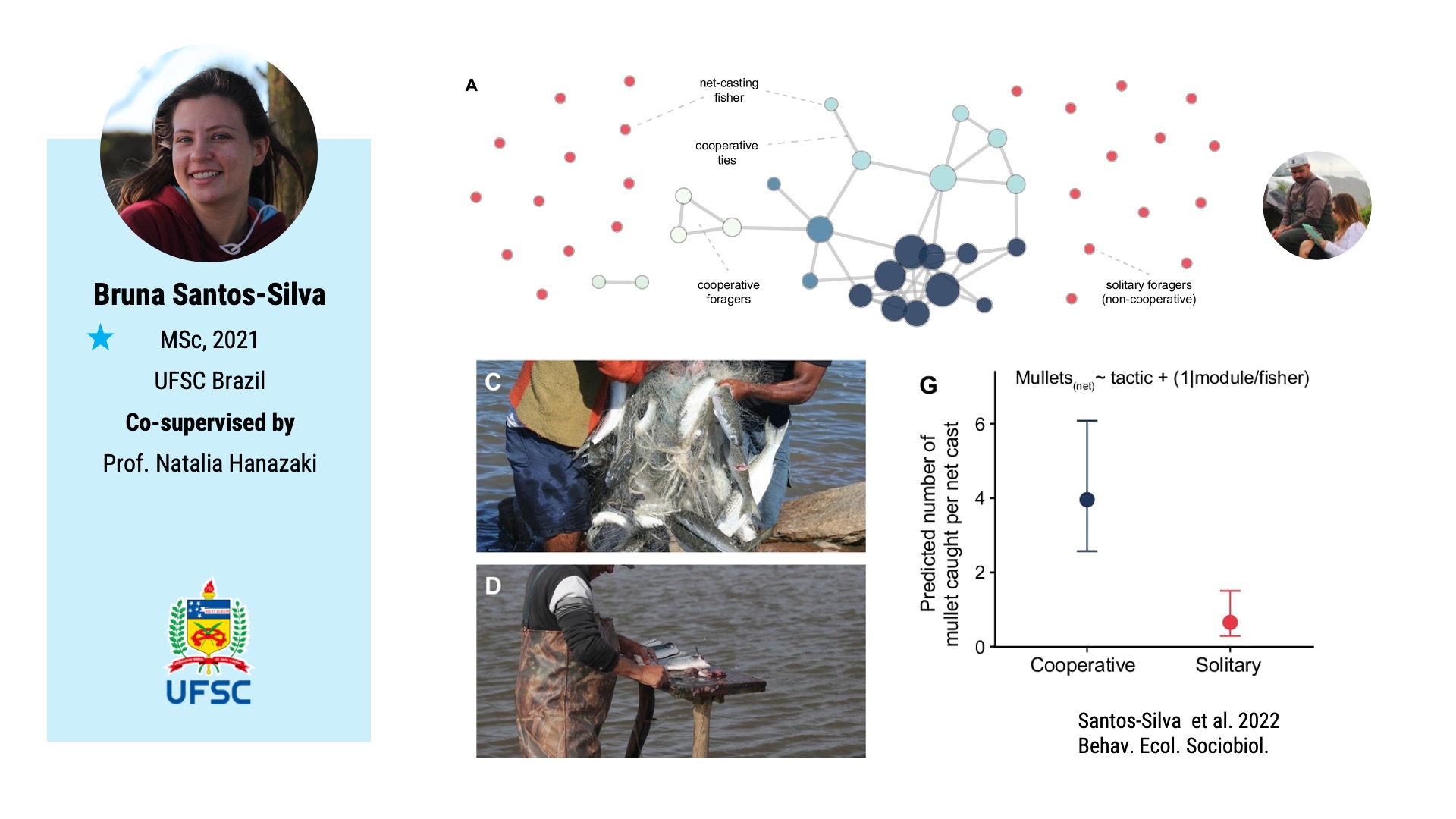
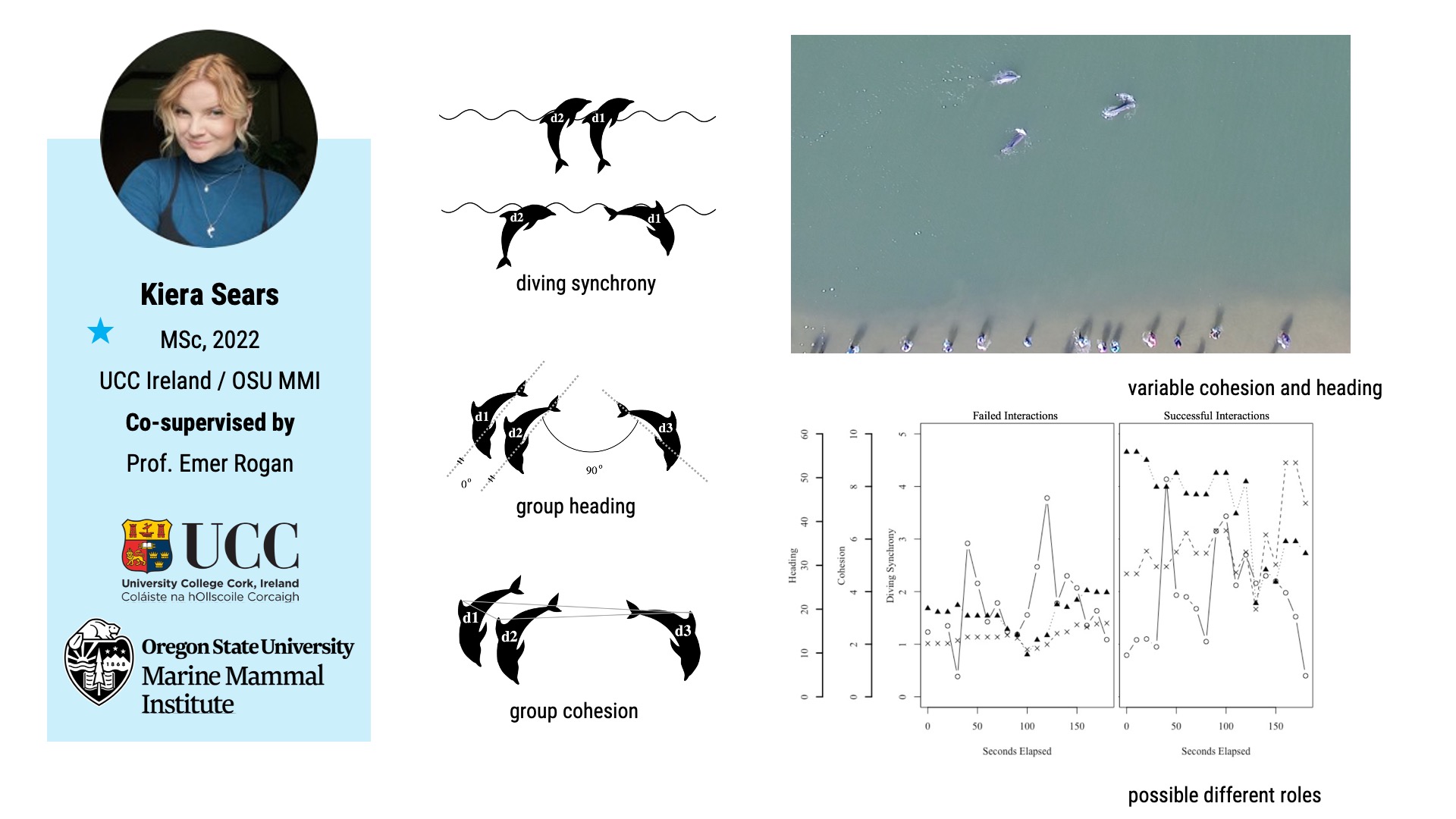
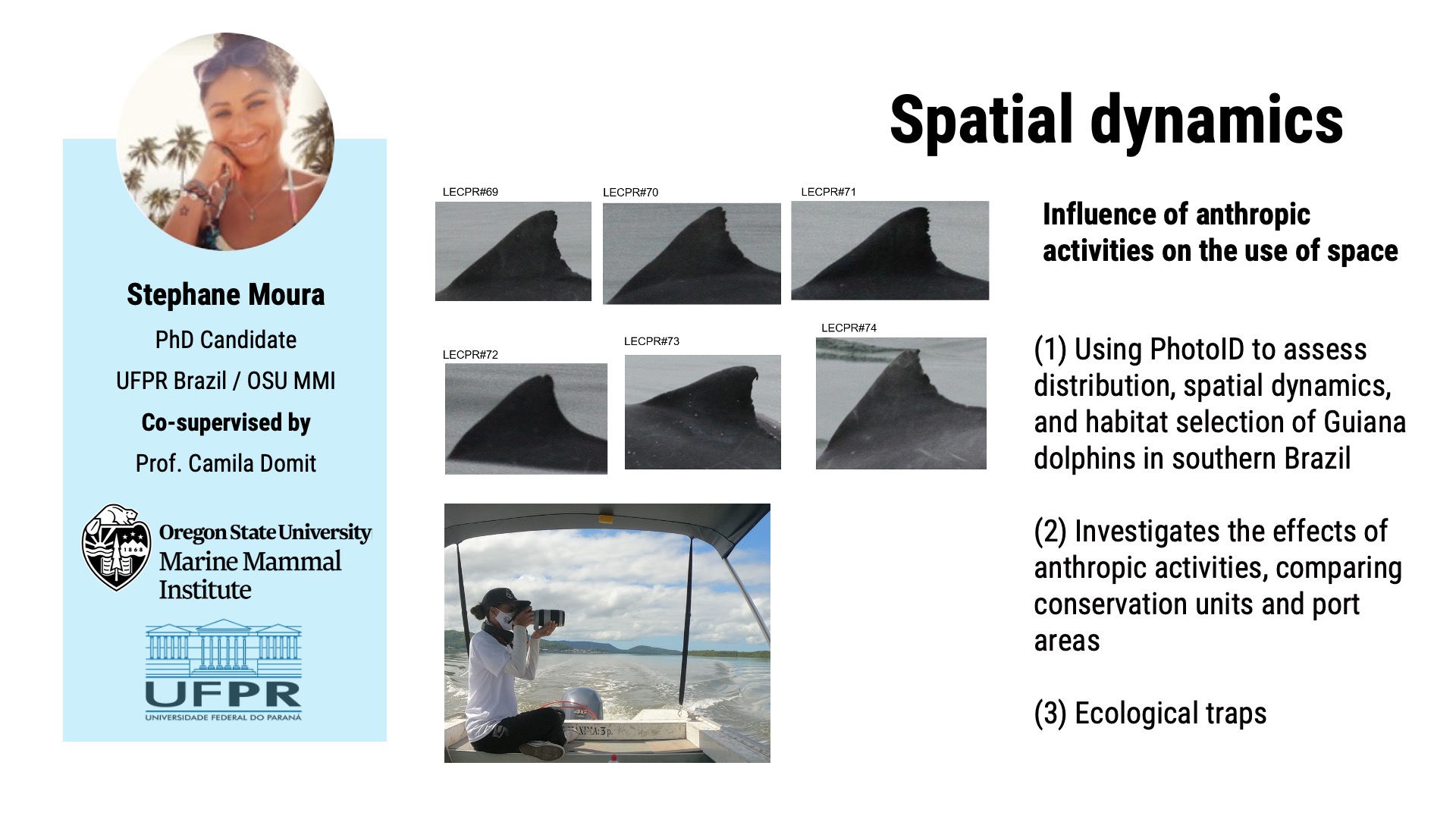
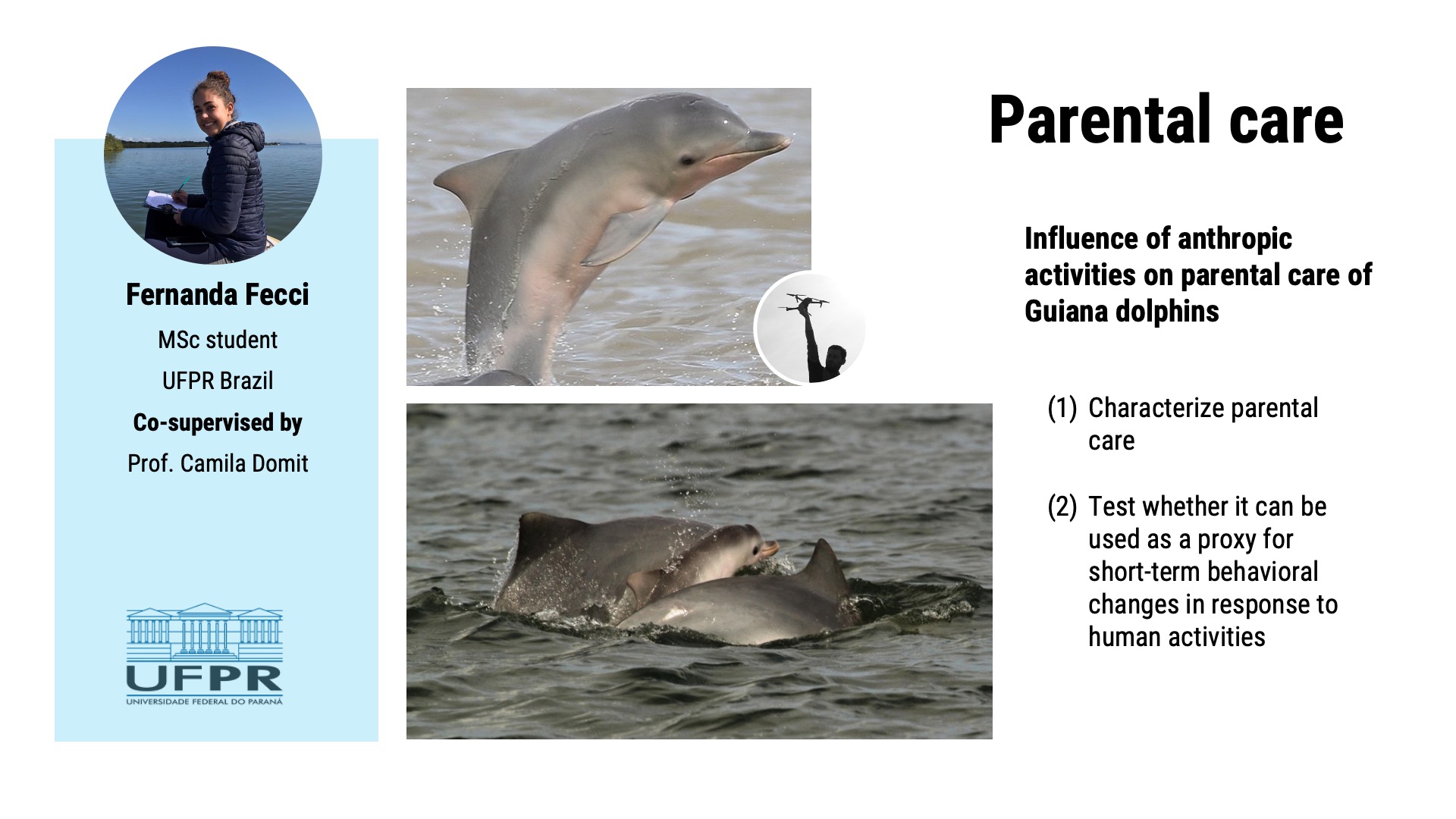
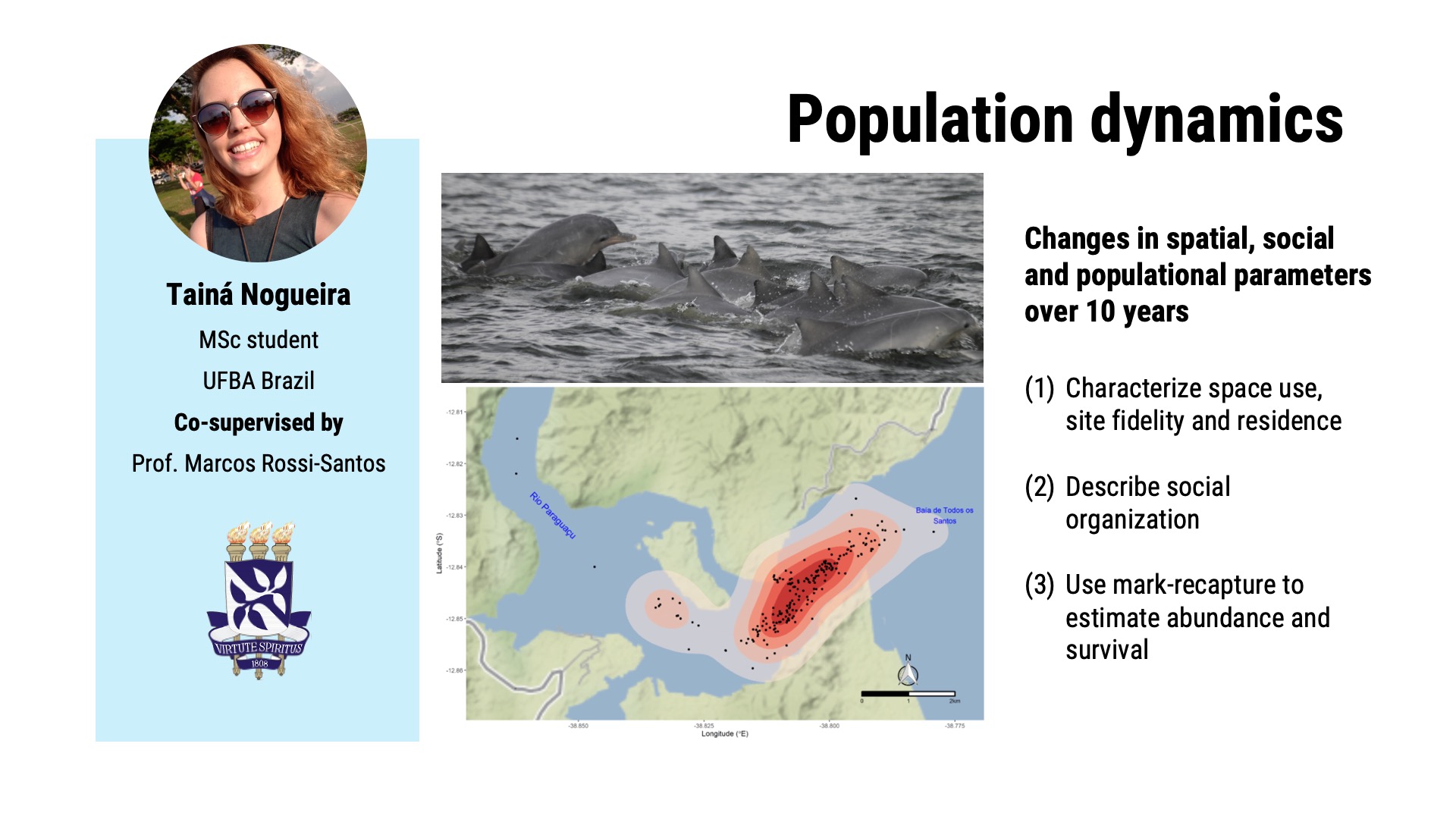
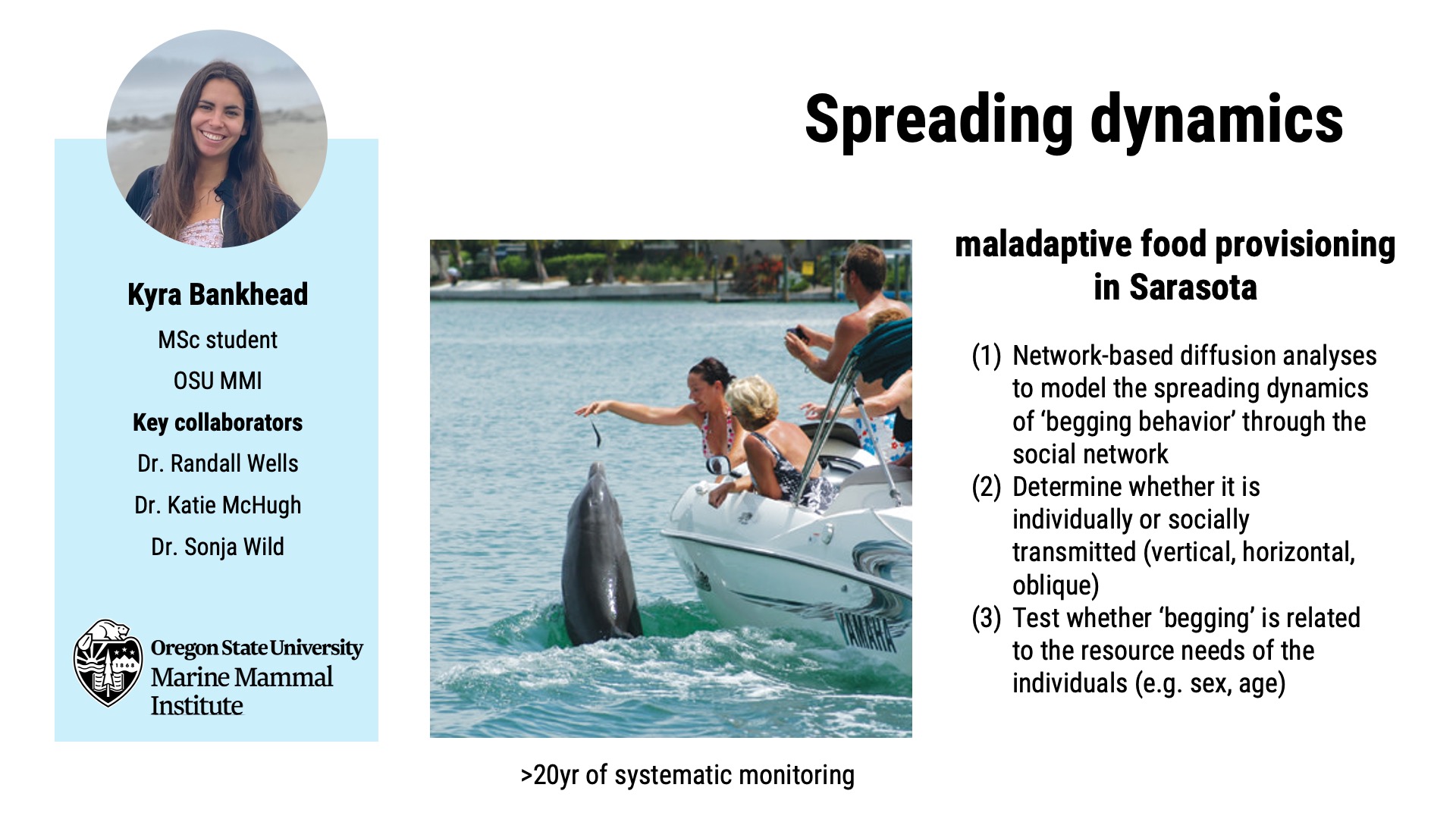
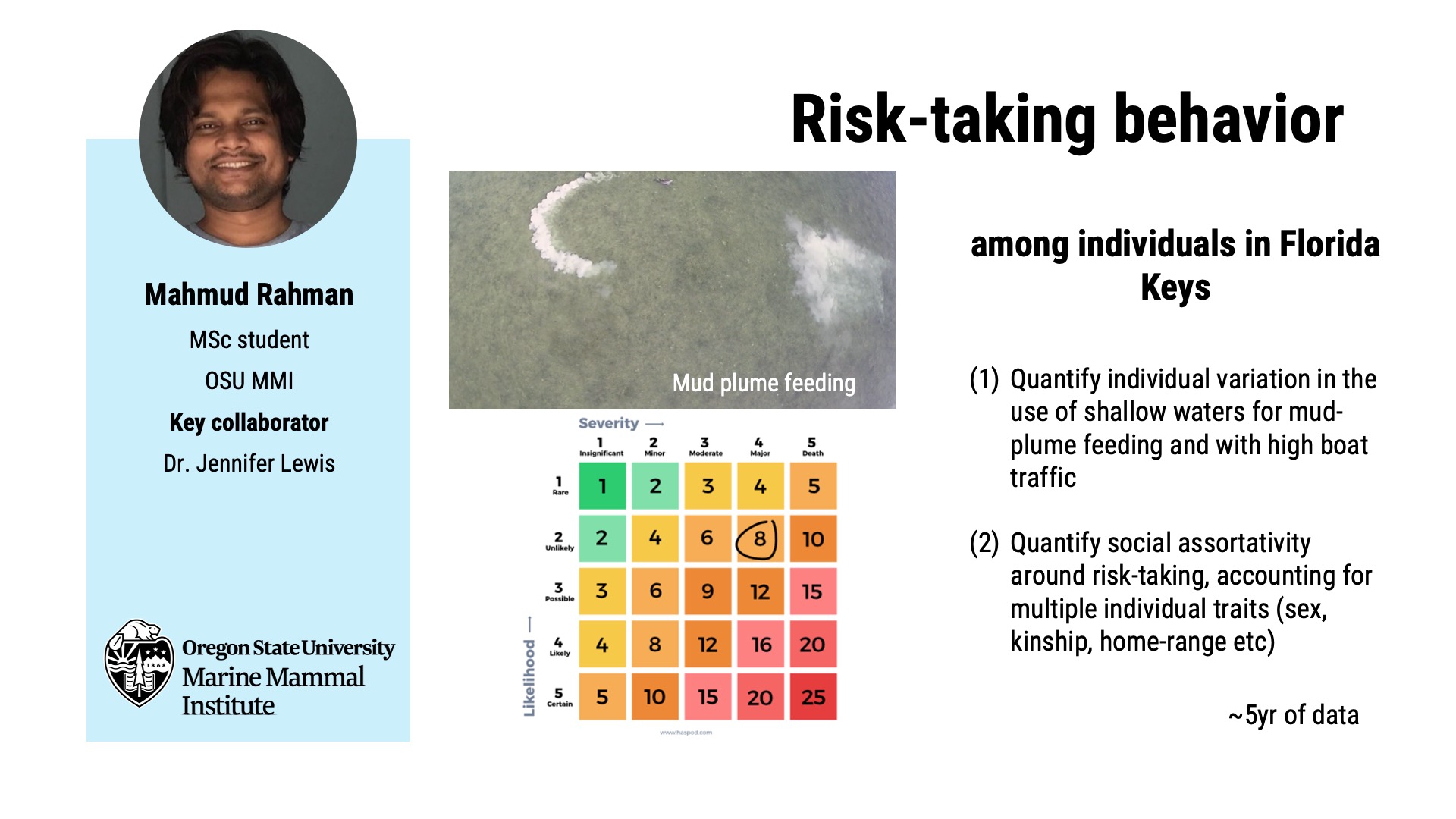
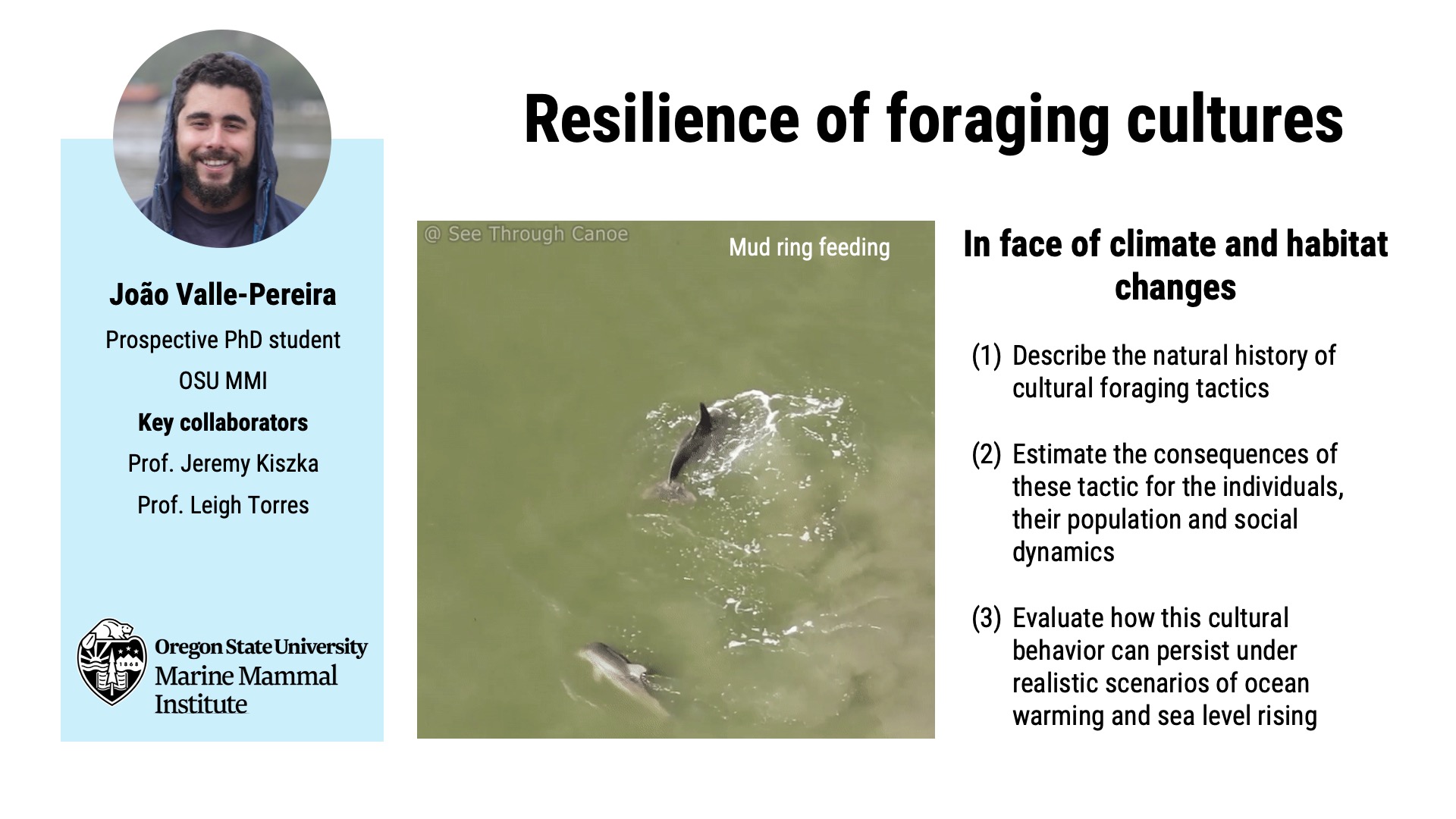
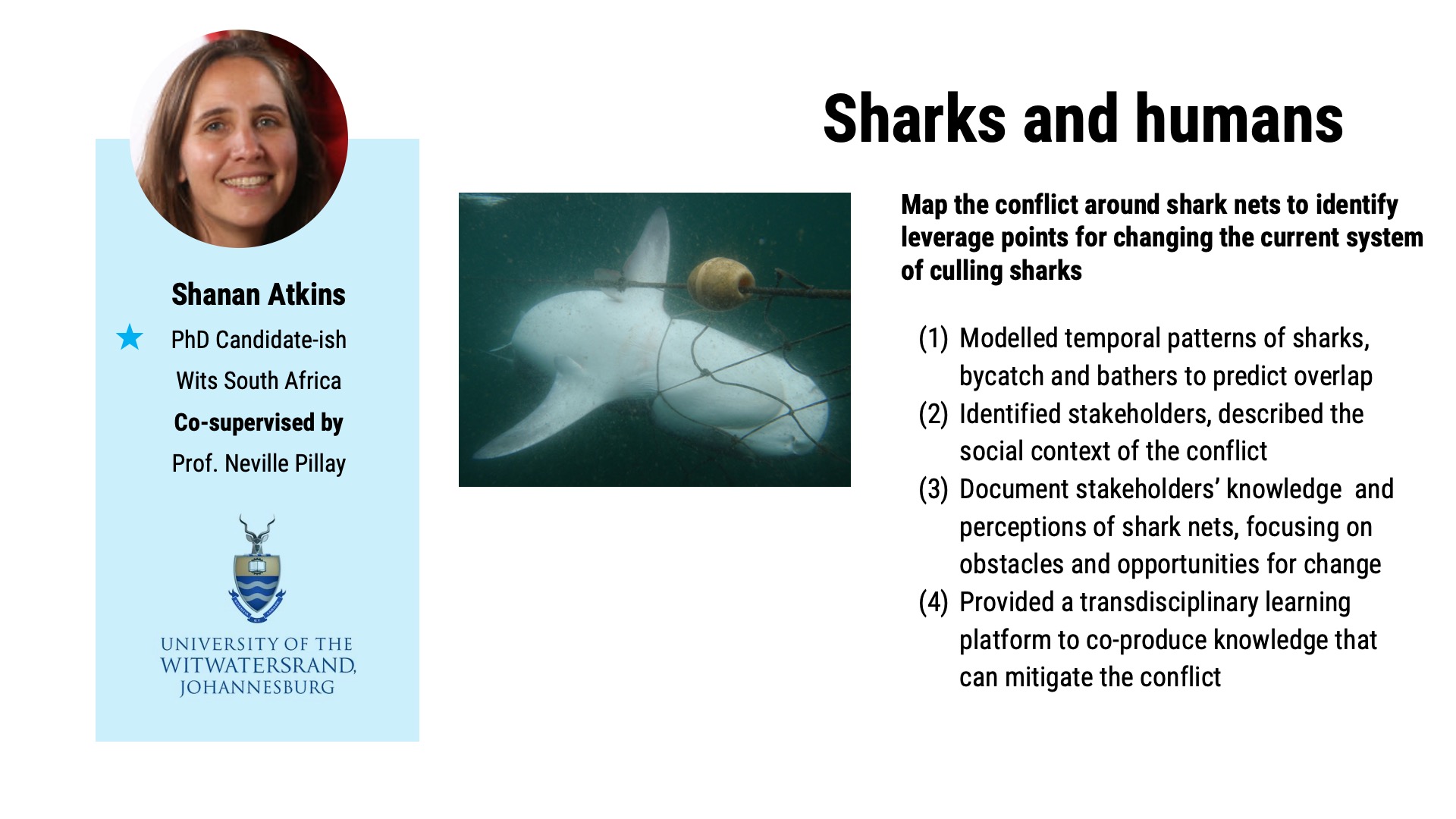
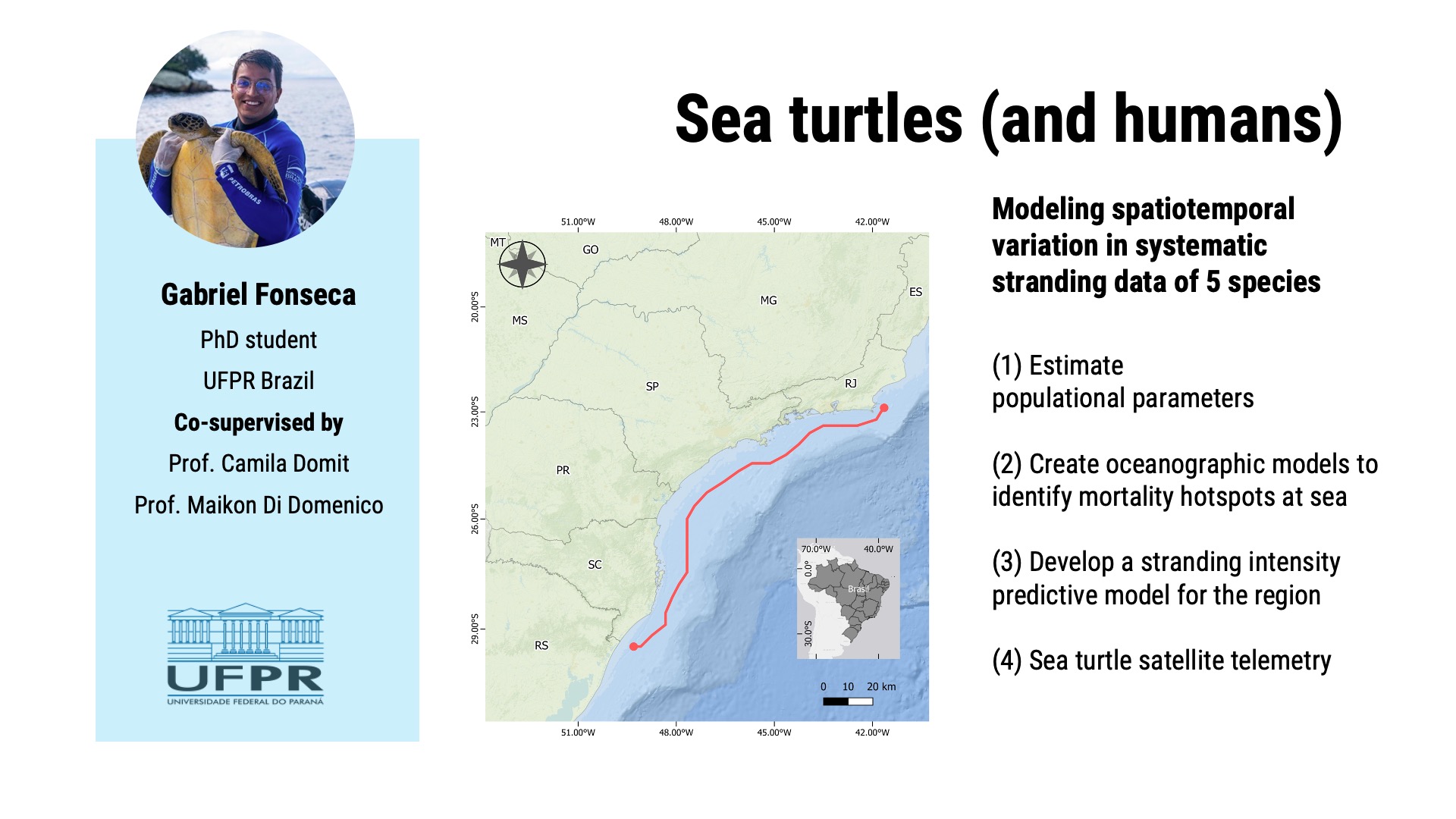
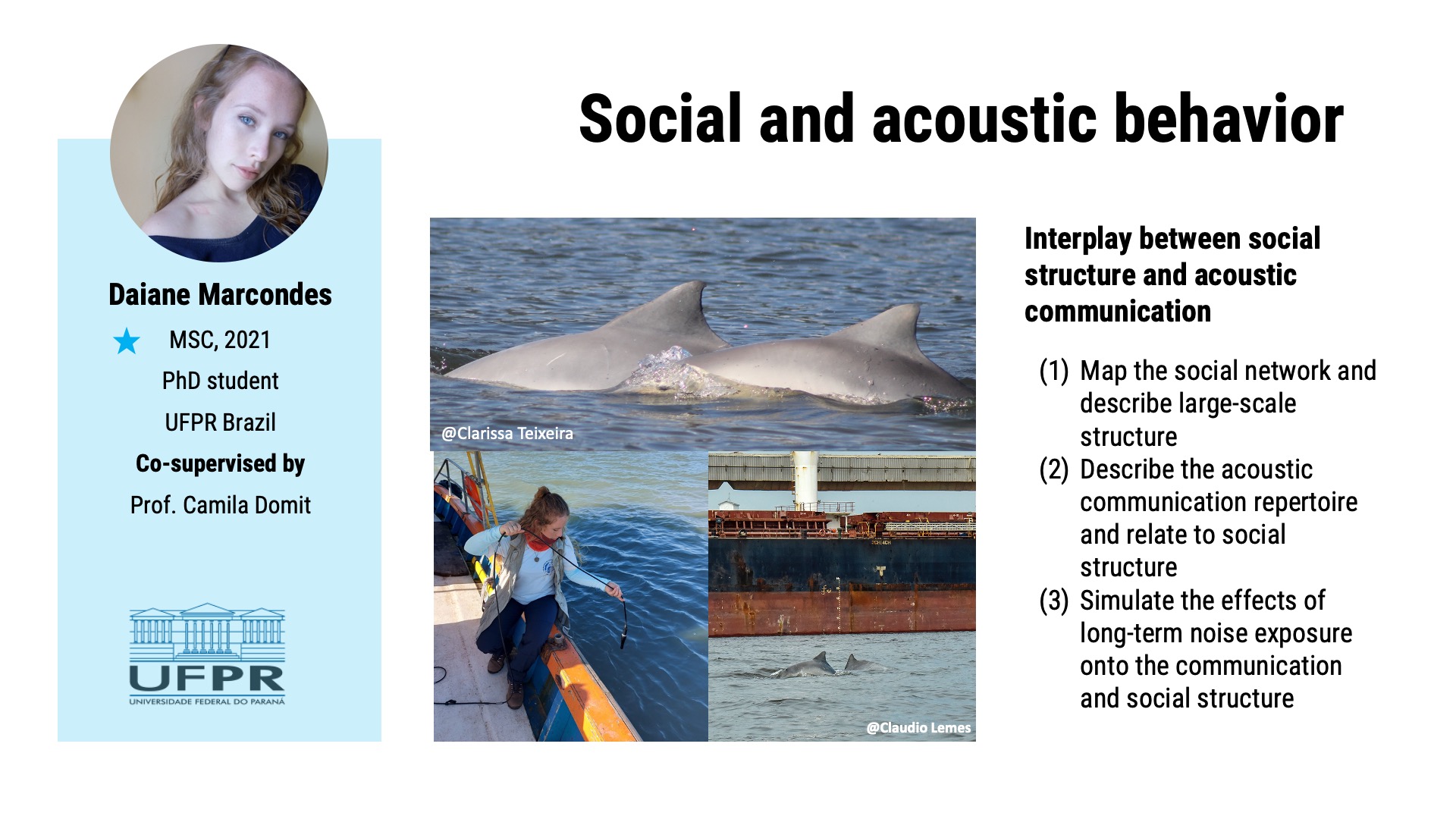
Collaborators
SERGIO RICARDO FLOETER
SERGIO RICARDO FLOETER, Universidade Federal de Santa Catarina, Brazil
Click herePedro Volkmer de Castilho
Pedro Volkmer de Castilho, Universidade do Estado de Santa Catarina
CLICK HERE
